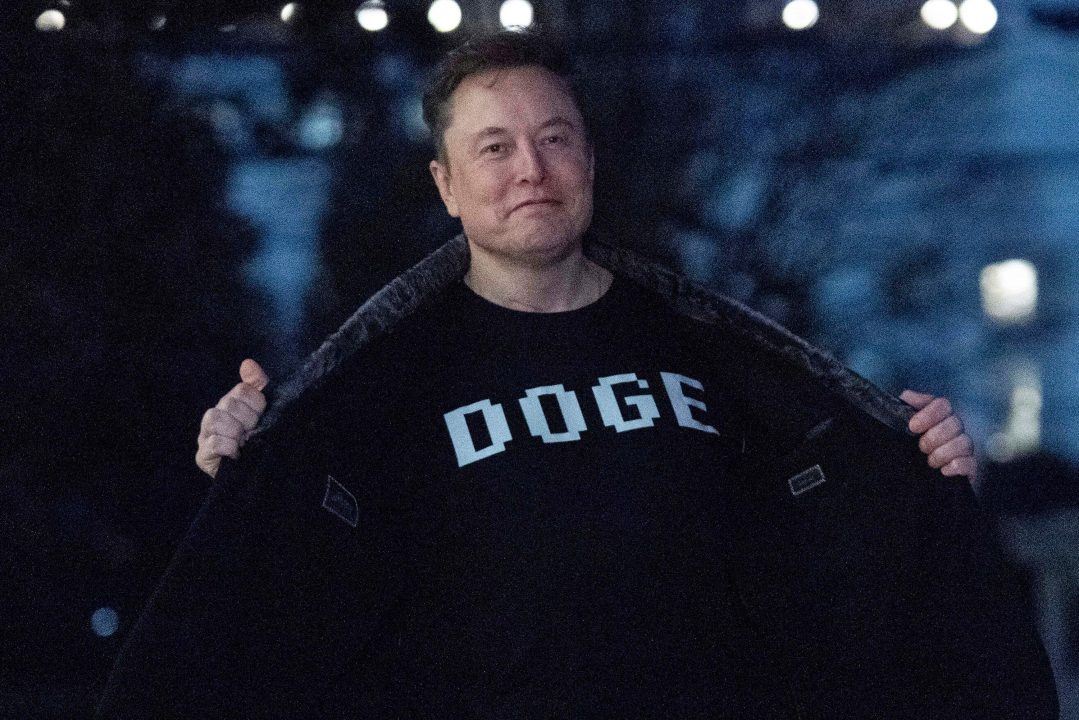Elon Musk is leaving his government role as a top adviser to US President Donald Trump after spearheading efforts to reduce and overhaul the federal bureaucracy.
The billionaire entrepreneur posted about his decision on X, his social media website.
“As my scheduled time as a Special Government Employee comes to an end, I would like to thank President @realDonaldTrump for the opportunity to reduce wasteful spending,” he wrote.
“The @DOGE mission will only strengthen over time as it becomes a way of life throughout the government.”
A White House official, who requested anonymity to talk about the change, confirmed that Musk was leaving.
Musk’s departure comes one day after he criticised the centrepiece of Trump’s legislative agenda, saying he was “disappointed” by what the president calls his “big beautiful bill”.
The legislation includes a mix of tax cuts and enhanced immigration enforcement.
While speaking to CBS, Musk described it as a “massive spending bill” that increases the federal deficit and “undermines the work” of his Department of Government Efficiency (Doge).
“I think a bill can be big or it could be beautiful,” Musk said. “But I don’t know if it could be both.”
His CBS interview came out on Tuesday night. Trump, speaking in the Oval Office on Wednesday, defended his agenda by talking about the delicate politics involved with negotiating the legislation.
“I’m not happy about certain aspects of it, but I’m thrilled by other aspects of it,” he said.
Trump also suggested that more changes could be made.
“We’re going to see what happens,” he said. “It’s got a way to go.”
Republicans recently pushed the measure through the House and are debating it in the Senate.
Musk’s concerns are shared by some Republican lawmakers.
“I sympathise with Elon being discouraged,” said Wisconsin senator Ron Johnson.
Speaking at a Milwaukee Press Club event on Wednesday, Johnson added that he was “pretty confident” there was enough opposition “to slow this process down until the president, our leadership, gets serious” about reducing spending.
He said there was no amount of pressure Trump could put on him to change his position.
Speaker Mike Johnson has asked senators to make as few changes to the legislation as possible, saying that House Republicans reached a “very delicate balance” that could be upended with major changes.
The narrowly divided House will have to vote again on final passage once the Senate alters the bill.
On Wednesday, Johnson thanked Musk for his work and promised to pursue more spending cuts in the future, saying “the House is eager and ready to act on Doge’s findings”.
The White House is sending some proposed rescissions, a mechanism used to cancel previously authorised spending, to Capitol Hill to solidify some of Doge’s cuts.
Musk’s criticism comes as he steps back from his government work, rededicating himself to companies like the electric automaker Tesla and rocket manufacturer SpaceX.
He has also said he will reduce his political spending, because “I think I’ve done enough”.
At times, he has seemed chastened by his experience working in government. Although he hoped that Doge would generate 1 trillion dollars in spending cuts, he has fallen far short of that target.
“The federal bureaucracy situation is much worse than I realised,” he told The Washington Post.
“I thought there were problems, but it sure is an uphill battle trying to improve things in DC, to say the least.”
Musk had previously been energised by the opportunity to reshape Washington. He wore campaign hats in the White House, held his own campaign rallies, and talked about excessive spending as an existential crisis. He often tended to be effusive in his praise of Trump.
“The more I’ve gotten to know President Trump, the more I like the guy,” Musk said in February. “Frankly, I love him.”
Trump repaid the favour, describing Musk as “a truly great American”.
When Tesla faced declining sales, he turned the White House driveway into a makeshift showroom to illustrate his support.
It is unclear what, if any, impact that Musk’s comments about the bill would have on the legislative debate. During the transition period, he helped whip up opposition to a spending measure as the country stood on the brink of a federal government shutdown.
His latest criticism could embolden Republicans who want bigger spending cuts.
Republican Utah senator Mike Lee reposted a Fox News story about Musk’s interview while also adding his own take on the measure, saying there was “still time to fix it”.
“The Senate version will be more aggressive,” Lee said. “It can, it must, and it will be. Or it won’t pass.”
Only two Republicans — representatives Warren Davidson of Ohio and Thomas Massie of Kentucky — voted against the bill when the House took up the measure last week.
Davidson took note of Musk’s comments on social media.
“Hopefully, the Senate will succeed with the Big Beautiful Bill where the House missed the moment,” he wrote.
“Don’t hope someone else will cut deficits someday, know it has been done this Congress.”
Follow STV News on WhatsApp
Scan the QR code on your mobile device for all the latest news from around the country


 PA Media
PA Media

























